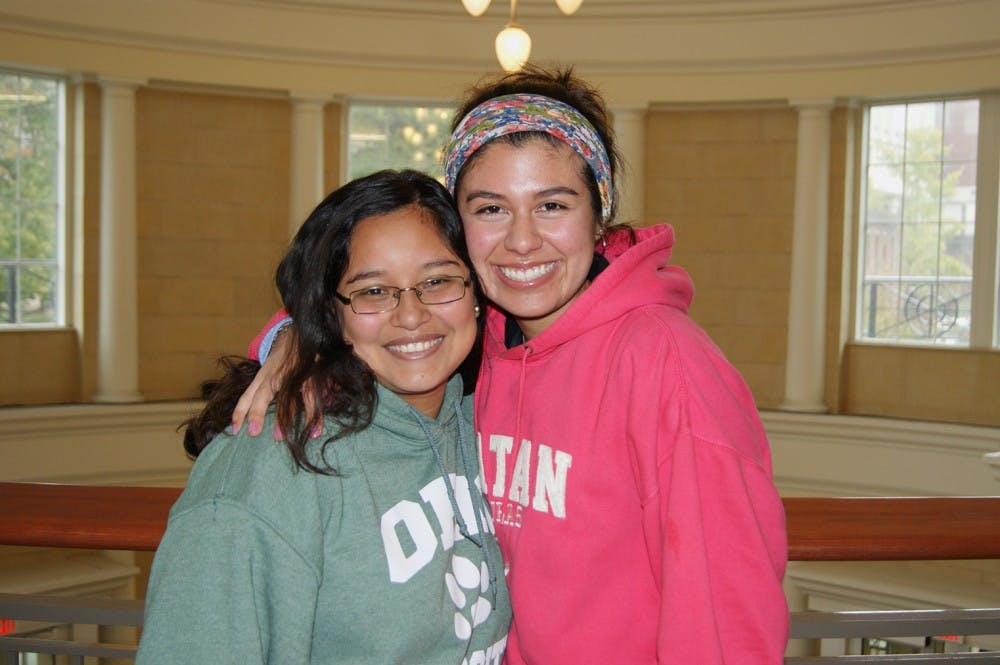Día de los Muertos, a huge party for the dead that happens every year, is being celebrated differently by the up-and-coming Lantinx generation.
Families may be celebrating their dead, but they are doing so much more; they’re celebrating the visit of their passed family members. Día de los Muertos goes a lot deeper and is more cross-cultural than any basic holiday. But some have begun to wonder if the ancient tradition can survive with the new wave of Latinx.
Día de los Muertos has deep roots in indigenous culture but is now more closely associated with Christianity. Although the holiday is closely associated with the religion, mostly due to the colonization in the Americas by Spain, it began as an Aztec tradition about 3,000 years ago. When the Spaniards came to the Americas in the 16th century, the holiday, originally celebrated in the summer, was moved to coincide with the Catholic All Saints Day and All Souls Day. That’s how the celebration spread around the Americas, and that’s why the holiday is celebrated by many countries but called different names by each.
Día de los Muertos is its Mexican name. In Mexico, people would gather in the cemeteries and collectively clean the graves, party and honor their dead. Such an old traditional holiday can lose its value with each generation, and it seems that some young Latinx are disassociating more and more with religion.
Although the holiday spread, Día de los Muertos is a Mexican tradition and shouldn’t be generalized as part of all traditions in Latin America. That’s how Guatemalan Analee Davis, a freshman studying English and Spanish, knows the holiday. To Davis, Día de los Muertos is not foreign, but she celebrates Día de todos los Santos, not Día de Los Muertos.
“We also celebrate the fact (people) have gone, and they’re hopefully in heaven and all that good stuff,” Davis said. “It’s not as centered around death as Día de los Muertos is.”
Davis said that in some ways, Día de los Muertos and Día de todos los Santos are the similar, but there are bigger differences between the holidays.
“Día de Los Muertos, I feel like, is more centered around the passing of your family members and people you have loved that have moved on to a better life,” Davis said. “Whereas, with Día de los Santos, it’s not anything regarding your loved ones or their passing. It’s about being together and celebrating your religion.”
Día de los Muertos is traditionally celebrated in southern Mexico in places like Oaxaca, a Mexican state, which hold a lot of the tradition and importance around the holiday. Rosa Aviña, a junior studying marketing, is a native to Oaxaca, Mexico. Aviña is closely tied to the holiday, having celebrated it her whole life.
“I’m agnostic,” she said. “My mom is very, very Catholic, but (Día de los Muertos) is something that I absolutely love.”
Aviña said even though the holiday may be closely related to Catholicism now, she embraces it as a cultural tradition she enjoys. For Aviña, it’s a lot less religious and more about celebrating a culture that has always been a part of her. Aviña will celebrate this year differently rather than practicing the tradition with which she grew up.
“While my mom will pray, I will just light a candle and leave the food out,” she said.
Both Aviña and Davis feel the strong connections to their cultures and these celebrations amplify the connections. Whether it’s making fiambre, a Guatemalan traditional dish made on Día de los Santos, or an ofrenda, a traditional Mexican altar made for the dead, both women will continue to celebrate parts of their culture.
“I might go to Nelson Court and make a fiambre on the fly and maybe text my friends ‘¡Feliz Dia!’” Davis said.
Although traditions will obviously change and evolve, the connections that these holidays for families carry will continue to thrive.






